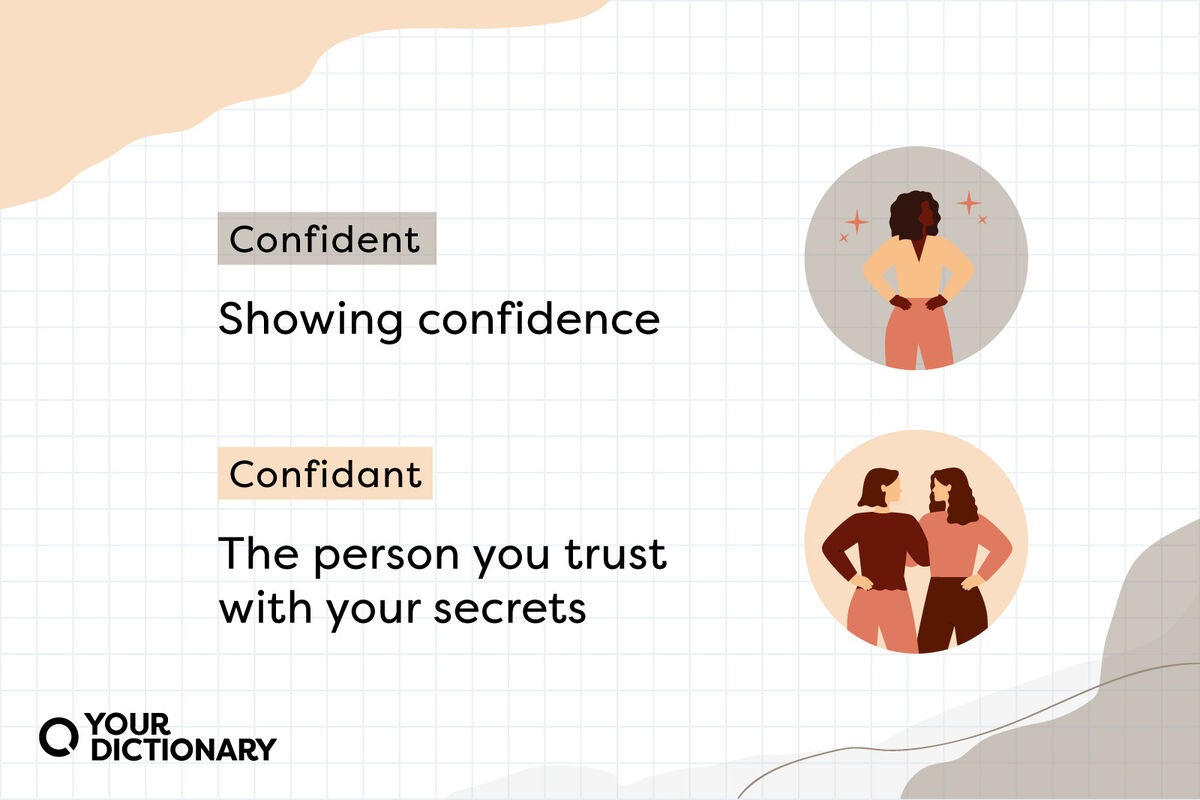
At first glance, confident and confidant look pretty much the same. They even have the same origins, since they’re both derived from the Latin confidere (to put trust in) and the French confidente (having full trust). But which word should you use to describe yourself, and which one describes your trustworthy BFF?
Confident: Trust Me
Confident (CON-fih-dent) is that great, no-doubt feeling when you’re sure about something. It’s an adjective that evokes trust, whether it’s in yourself (self-confident) or in another person. With its first recorded usage dated to the 16th century, confident is older than the similarly spelled confidant. It’s also much more commonly used today — so chances are, if you’re trying to decide between confident vs. confidant, you’re probably looking for confident.
Using ‘Confident’ Correctly
Confident only functions as an adjective to modify a noun. If you want to use it as a noun to describe the state of feeling confident, you want the word confidence.
Examples of confident in a sentence include:
- I’m confident that I aced the biology test.
- Are we confident that gray is the best color for the living room walls?
- Marcia was confident that she’d just seen her ex-boyfriend — and equally confident that she still loved him.
- You’d have to be pretty confident to wear an ugly Christmas sweater to a job interview.
A similar adjective is confidential, meaning “to be kept secret," as well as the noun confidence When someone tells you something in confidence, they may be telling it in a confident way, or they may be telling you confidential information. The only way to know which one is by reading the context clues.
Confidant: The Person You Trust
Confidant (con-fih-DAHNT), on the other hand, describes the person whom you trust more than anyone else — the person to whom you “confide” secrets. Despite it being spelled nearly the same way, confidant uses more of a French pronunciation than confident, making it important to use the right word in spoken conversation as well as writing.
Confidant was first used in the 17th century to describe “a person to be trusted,” derived from confidence. Your confidant is whom you are most confident will keep a secret.
Using ‘Confidant’ Correctly
So how do you use confidant, and how is it different from confident in a sentence? Some examples of using confidant may include:
- My mom is my greatest confidant.
- Kelly always tells her BFFs everything; they’re her confidants.
- Can I trust you to be my confidant on this matter?
- Harry and James are my brother’s greatest confidants. They’re also his dogs, so his secrets are safe with them.
You may also see confidant spelled confidante (also pronounced con-fih-DAHNT), which historically describes a woman with whom you trust your secrets. However, as English becomes a more gender-neutral language, the difference between confidant and confidante doesn’t matter as much. Feel free to use whichever spelling you prefer.
Be Confident In Your Word Choice
Does one letter really make a difference? It certainly can. Learn more about how a slight spelling change can shift the meaning of a word.